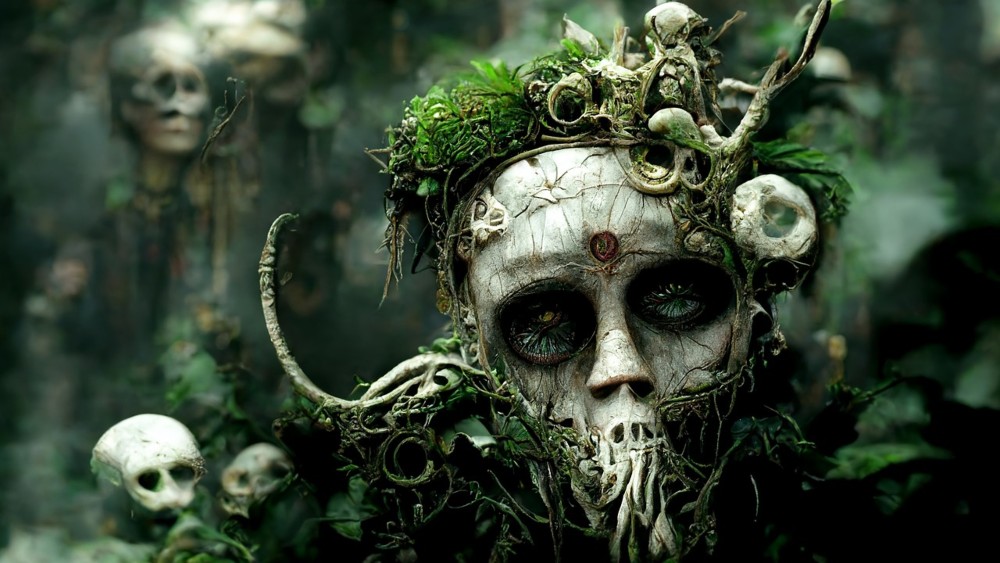After I finished reading Monsters: A Fan’s Dilemma, Seattleite Claire Dederer’s latest book, all I wanted to do was find a wise friend and discuss the author’s take on what to do with the art of monstrous men. As the book asks: Can we still love the work of Picasso, Hemingway, Roman Polanski, Woody Allen, Miles Davis, Gauguin, Michael Jackson, and other flawed artists?

Her provocative book tackles big questions: How do we balance our moral outrage over the men’s monstrous actions with our love of their work, our connections to the films, books, art, and music that have made us feel most alive?
Dederer began thinking about the works of monstrous men in 2017 during the Trump “Access Hollywood” era. At the time, she was researching Roman Polanski for a book on the filmmaker and came across the horrifying account of his rape of a 13-year-old school girl. Dederer wondered how she could ever again watch his movies, masterworks like Chinatown, Rosemary’s Baby, Repulsion, and Knife in the Water.
With considerable wit and intelligence, she penned an essay, “What Do We Do with the Art of Monstrous Men?” printed in The Paris Review in 2017. Dederer’s new book, released last month by Knopf, expands on her article. She treats the problem from the perspective that consuming a piece of art is, in her words, “like the meeting of two biographies,” assessing the art while judging the creator.
As many of her fans know, Dederer is a fourth-generation Seattleite and University of Washington grad who reviewed films for the Seattle Weekly before becoming a freelance journalist, critic, essayist, and memoirist. In addition to this fierce new book, she authored two other highly personal books, “Love and Trouble: A Midlife Reckoning” and “Poser: My Life in 23 Yogi Poses.”
Her latest book looks at the problem of consuming art made by monsters from a variety of standpoints including the idea that hateful things like racism and antisemitism were defined and treated differently in bygone times. She found herself debating with friends and acquaintances.
When Dederer brought up the idea that an artist’s behavior could prevent people from consuming their work, she used Woody Allen as the reference point. (She notes, “Polanski was worse, whatever that means.”) Dederer said she had trouble watching Manhattan, the story of a 42-year guy nailing a high schooler, after it became known that Woody had slept with Soon-Yi, his partner Mia’s daughter. She found almost everyone had a position on the Woody thing.
Real quotes: “Midnight in Paris was glorious. I just put the other stuff out of my mind.” “Oh. I could never see a Woody Allen film.” “I grew up watching his movies. I love his movies, they’re part of my life.” “It’s all a plot cooked up by Mia.” “I’m just glad his stuff sucks now so I don’t have to worry about it.” (That last quote was hers.)
Dederer kept pursuing the issue, probing the thoughts of a male writer who belongs to the school that believes the artwork ought to be divorced from the maker. The writer told her, “Get over it. You really need to judge it strictly on aesthetics.”
Throughout the book, the author views the problem through alternative lenses: the critic, the fan, and viral masculinity. Dederer confesses that when she didn’t want to hold her heroes accountable, the word “genius” came to mind: “a word that blew away all my worries and my guilt.”
She works defining the word “monster,” which she says denotes success and size, as well as deviance. And, while the word seems to work better when applied to male artists, Dederer also looks at culpable women such as J. K. Rowling, Joni Mitchell, Anne Sexton, Willa Cather, and Laura Ingalls Wilder.
The author especially trains her critical gaze on Doris Lessing, who abandoned two young children in Rhodesia when she waltzed off to join London’s literary scene. Dederer’s list of female monsters is short and their sins mostly have to do with motherhood. She says that, if the male crime is rape, the female crime is failure to nurture. She asserts, “The abandonment of children is the worst thing a woman can do.”
Dederer devotes one thought-provoking chapter to the tormenting thought: “Am I Monster?” Well, yes, she admits that she was guilty of “selfishness,” shutting the door against her family and saving the best of herself “for the paramour, the anonymous reader.” She spends weeks away from family at a writers’ retreat in Marfa, Texas. In addition, she tells of the sunny fall morning, deep in the Trump years, when she gave up drinking. While she insists she hadn’t abandoned her children, she found she’d been absent from her own life. Quitting drinking, she says, undermined her belief she was somehow better. But then she asks, “If I was part monster, surely there are people who’d done crimes who were part human.”
Monsters is an intelligent, passionate, sometimes comedic soul-search that journeys towards resolution. There’s an expectation that Dederer will resolve moral ambiguities in her 250-page interrogation, perhaps letting cancel culture win one. Ah, but to spell out her conclusion would ruin the fun, a real spoiler. Let’s just say the reader will be surprised and in the final pages will find a workable answer.
Discover more from Post Alley
Subscribe to get the latest posts sent to your email.

Thank you for yet another great article!
This reminds me of the song Heroes by Jill Sobule. “Why are all my heroes so imperfect…..”